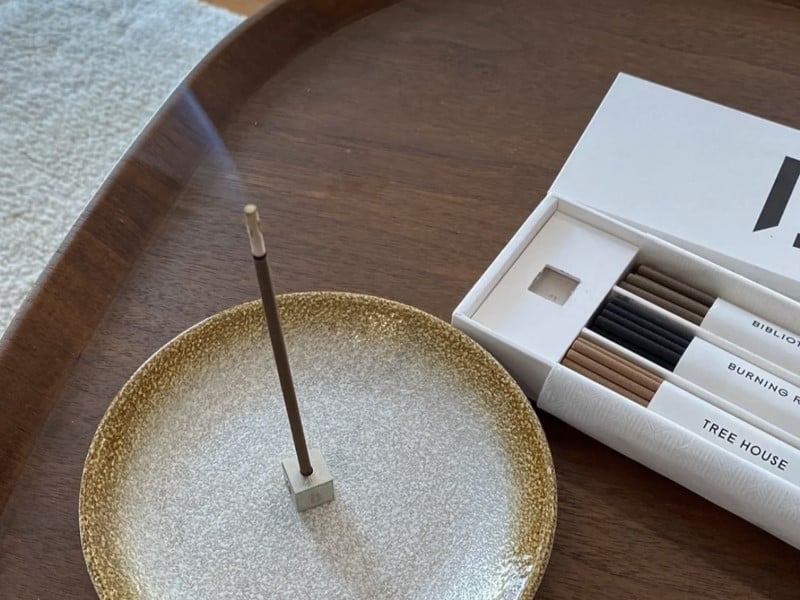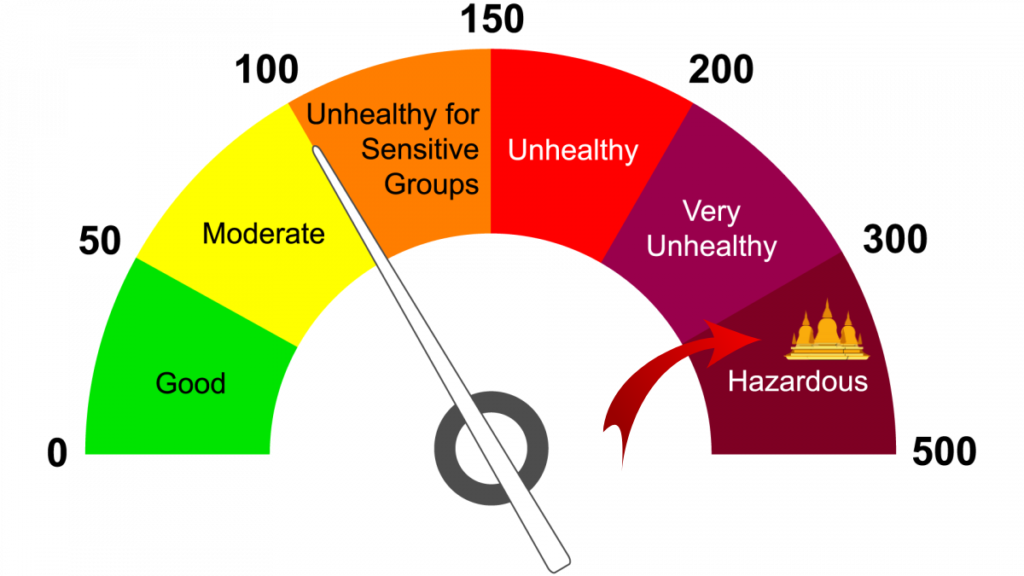You may have heard that incense can cleanse the air; you may wonder about the facts of the idea. Burning incense has been used for religious and recreational reasons for eons, with many claims that it has abilities or powers, such as cleaning the air. Many fear that burning incense can negatively impact the atmosphere of their home. I am here to answer all your questions regarding incense cleaning the air since I have vastly studied the topic and written many articles about incense.
Certain types of incense, or scents, may have antiseptic effects on your home’s air. On the contrary, other incense may not possess these abilities. Only some incense, such as frankincense or cedar, can cleanse the air. Some incense reduces airborne viruses, dust, and the like that could contribute to allergies.
You must know several things about burning incense to clean the air. You need to know the risks and which incense contains antimicrobial effects and which doesn’t. Read on to learn all you need to know about incense and cleansing the air!

Does Incense Enhance Air Quality?
Gases, particulate matter, and other organic compounds can be released when you burn incense. In the past, incense has sometimes been known for enhancing the air quality in its surroundings.
Though, there is some confusion about that statement as some studies show that when burning incense, the fumes and matter cast into the air could cause pollution and health issues such as airway disease.
When inhaled, this smoke could cause your airway to become weakened. The World Health Organization, or WHO, advises 0.05 mg/m3 for safe concentration levels in an establishment.
A study on temples that burn incense in Bejing found high levels of these compounds, such as benzene, xylene, and formaldehyde. These studies concluded these temples overly surpassed WHOs’ advice on safe concentration levels from burning the incense.
Although not all types of incense have these harsh effects, some incense will indeed purify or cleanse the air.
Incense Can Cover Odors
Another thing incense is grand at doing is covering odors. Yes, covering, not eliminating. Incense will not destroy or absorb smells, but it can help hide smells like smoke or lingering cooking odors.
Incense can be a quick and easy way to cover the unwanted odors in your home. This is a way many people deodorize their homes, giving your home and the air of your home a clean feel.
You could burn incense in your home to cover smells such as:
- Damp clothes or other musty smells.
- Lingering smells from cooking.
- Pet odors.
- Garbage odors.
- Smells of smoke.
Burning incense in your home can be a perfect air freshener alternative to aerosol air fresheners containing many chemicals. This also results in cutting down on chemicals in the air.
If you’re seeking an aroma that covers a smell fast with no time for a deep clean, try Nag Champa or Cedar. These two incense can not only cover odors but clean the air at the same time. Within minutes, the aroma of incense will hide the other unwanted odors of your home.
Dust Particles
Burning organic materials, like coal, incense, or tobacco leaves, releases PAHs or polycyclic aromatic hydrocarbons into the air. PAHs are a class of organic compounds when dealing with chemistry.
Incense may yield dust particles you could breathe in your lungs into your home’s air when burning. This dust could irritate people with allergies. Regardless, inhaling anything other than medical necessities into your lungs is rarely good.
Suppose you are sensitive to dust and other dirt particles. In that case, consider taking precautions when burning incense to avoid aggravating your allergies.
Precautions you could take may include opening a window for ventilation or staying clear of the room until the incense has entirely burned and the room has aired out.
Purification and Cleansing the Air
Though many studies state that incense only pollutes the air, several convey the opposite. Some incense can clean the air; studies suggest a one-hour incense treatment session caused over 94% reduction of bacteria, according to the bacterial counts.
The same survey states incense can disinfect and cleanse a room’s air.
However, this gets confusing as some incense negatively affects the atmosphere of your home. There are several studies on the many different types of incense with very little data stating whether incense, in general, does clean the air.
Yet, several studies convey it could only pollute your home.
When determining whether incense will clean or pollute the air in your home, remember that only some will clean your home, not all.
Do your research on the incense product you are considering buying. Ensure the product is all-natural with no added chemicals. The next step is researching the specific incense to determine its antiviral properties.
What Incense Will Clean the Air?
I’ve repeatedly stated that some incense can clean the air while others cannot. So what are those incense that contains antiseptic properties?
The incense that could clean your home’s air includes:
- Frankincense: The number one for antibacterial, anti-inflammatory, and antiviral properties.
- Citrus.
- Cedar.
- Nag Champas.
- Myrrh.
These incense all contain antiviral properties that will sanitize and clean the atmosphere in your home. Many floral-based incense ingredients will have antibacterial properties. The above incense is excellent for shortening colds and touches of flu.
Try burning one of the above incense when a family member in your home is ill to prevent spreading and promote healing. All while cleansing the air in your home, the incense leaves behind a refreshing aroma.
What Incense Won’t Cleanse the Air?
As I have mentioned a few times prior, most incense won’t clean the air in your home. Listed above are the only fragrances of incense that have the proper capacities to cleanse your home’s air.
Frankincense, Myrrh, citrus, and cedar are all great options for purifying your home’s air. However, other incense could contain harmful chemical compounds. As mentioned above, these chemicals could be released into the air, resulting in inhalation.
Inhalation of these compounds could have a bad ending for you and your family, from causing cancer to respiratory problems.
Is It Safe to Inhale Incense Smoke?
According to the EPA or Environmental protection agency, exposure to the particulate matter that is released when incense is burned has been linked to lung disease, inflammation, and cancer due to the carcinogens.
Long-term exposure to the compounds from incense smoke risks squamous cell lung or upper respiratory cancers.
Some studies say inhalation of incense could even be worse than smoking a cigarette. Another study showed that inhaling incense could be five times worse than smoking a cigarette.
However, with so many contradicting studies, it is hard to tell a definitive yes or no answer to the question: is it safe to inhale incense smoke?
In our advice, it is not safe to directly inhale the smoke as you would with a cigarette ever.
Although, being in the same room of the incense with proper ventilation is different. You shouldn’t have to worry if you follow reasonable precautions.
In a Nutshell
We hope you enjoyed learning all about how incense can clean the air. Understanding which incense can and can’t clean the air, along with the many hazards, can be helpful to know the next time you want to light up that incense. Remember, only particular incense like citrus or Myrrh has antiviral properties, and other incense can pose health threats. Feel free to share this article with your friends and family regarding all you need to know about incense and cleaning the air.
Read more:

